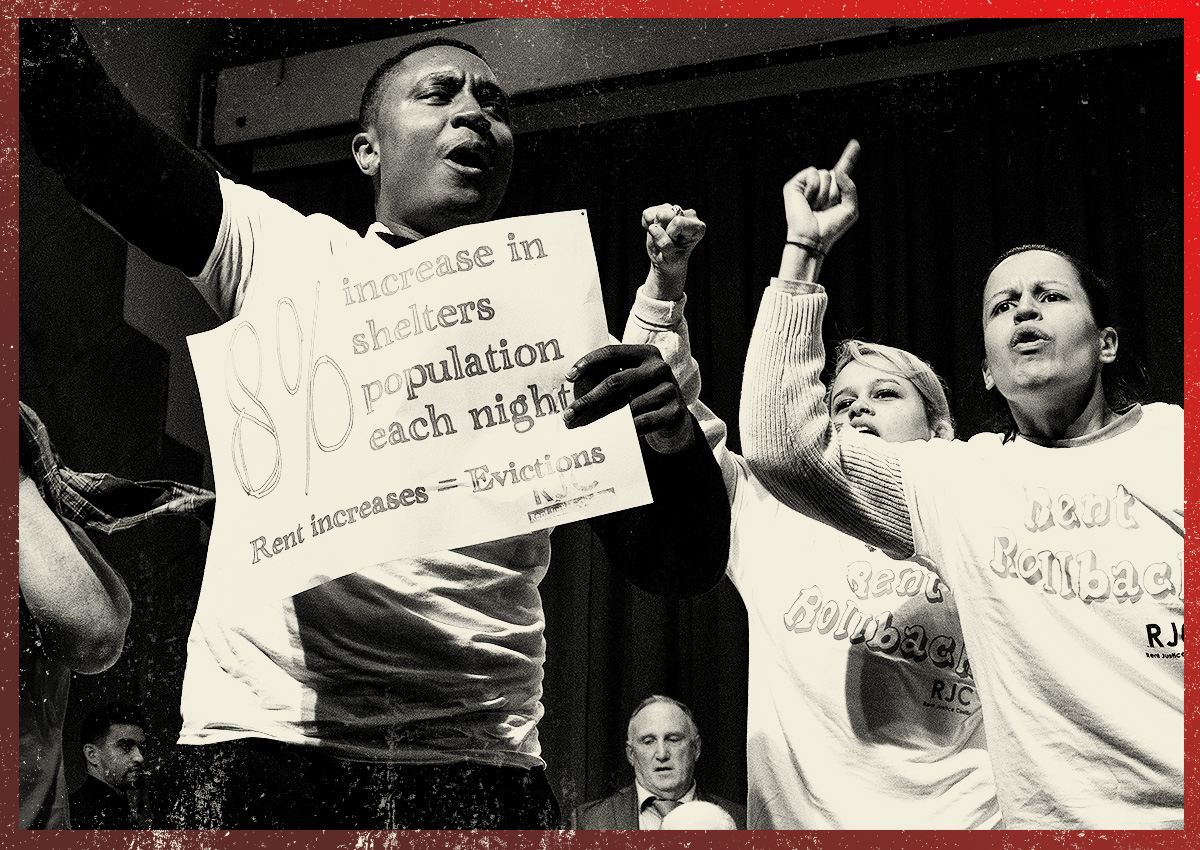Rent Guidelines Board votes are accurately derided as political theater. But if it were an actual show, the reviews would be terrible and it would close immediately.
The script is predictable, the acting is forced and the characters never improve regardless of who plays them.
This year’s production began with the usual statements of exasperation from tenants and landlords about the one thing they agree on. As a coalition of Queens tenant groups put it: “This process is a sham.”
The coalition itself is part of the act, but like all the performers, doesn’t seem to realize it. It’s New York City’s version of “The Truman Show.”
Consider the coalition’s statement before the board voted Monday to allow 2.75 percent rent increases at the city’s nearly 1 million rent-stabilized apartments:
“Despite varying data each year and the ongoing hardships and record-high eviction rates faced by tenants, the board continues to increase rents,” the tenant groups said. “It is remarkable that, regardless of operating income, insurance costs, or vacancy rates, the outcome is always the same: higher rents.”
You can see why this show never wins a Tony.
Eviction rates in the city are not at record highs. They are not high at all. And when evictions do happen, it is almost always because of a financial disruption in tenants’ lives, not because rent-stabilized units are too expensive. Their rents have been going up by only about 2 percent annually in recent years — less than wages, which rose by 4.1 percent in the past 12 months.
When rents rise by less than inflation and wages, they actually go down. Sometimes rents don’t rise at all: Twice during the de Blasio administration, the rent board froze them for one-year leases. The outcome is not “always the same,” except in the sense that they always go up less than owners’ operating costs.
Marginal rent increases have been guaranteed since the chameleonic Andrew Cuomo morphed into a real estate progressive and blessed the June 2019 rent stabilization reform. Yet when the rent board revs up every spring, tenant activists rehash the same lines as if nothing has changed.
Landlords, for their part, recycle statements year after year about the approved increases being lower than the data-based recommendations of the Rent Guidelines Board staff.
At public hearings leading up to the vote, the rhetoric has become so repetitive that some members have dozed off.
The politicians’ performances, meanwhile, make middle-school plays appear worthy of Broadway. Progressives demand rent freezes or rollbacks even as insurance, maintenance and other operating costs soar and housing court delays allow tenants to live rent-free for a year or three.
Some elected officials aim to please both camps. They issue self-contradicting quotes that satisfy no one. Mayor Eric Adams’ included this:
“The data reviewed by the board this year makes clear that our city’s tenants are facing a severe housing and affordability crisis, and that the quality of our city’s rent-stabilized homes is threatened by growing operating and maintenance costs for owners.”
Yet the same day, just before the vote, he called for a low increase, saying, “The rent is too damn high.”
Adams also noted, correctly, that the affordability problem cannot be solved unless a lot more housing is built. But his point was moot because the law of supply and demand does not apply to stabilized rents. They barely budge even when only 1 in 100 such units is empty.
Will the curtains ever close on Rent Theater? Barring a wholly unlikely political revolution, no. It’s baked into state law, and for all its lameness, serves a political purpose for elected officials and advocates. It’s their stage, and no auditions are required.
The irony is that the Rent Guidelines Board has never been more important. For five years, it has been the only hope for owners of a million units to meaningfully increase revenue. In buildings with few or no market-rate units, only the board stands between owners and foreclosure, usually preceded by physical deterioration that makes life hell for tenants.
That seems too important for a process that has become not just theater, but a farce.
Read more



